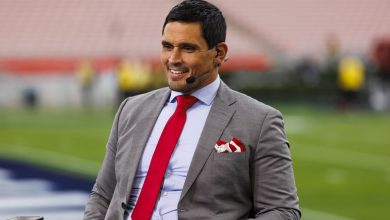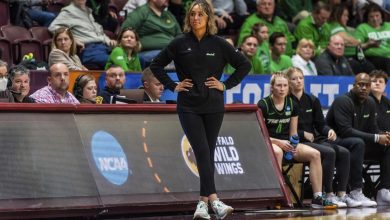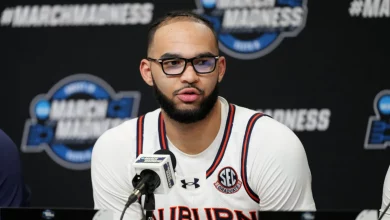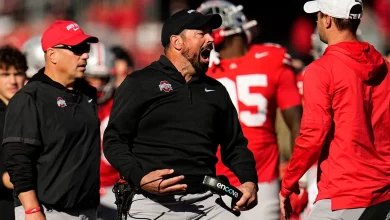Former Bears Coaches Reportedly Frustrated with Caleb Williams: Inside the Growing Tensions and What It Means for Chicago’s Future

In recent weeks, rumors have surfaced that some of the Chicago Bears’ former coaches are expressing frustration and disappointment with the team’s young quarterback, Caleb Williams. The tension is reportedly simmering behind the scenes, raising questions about the quarterback’s leadership, preparation, and relationship with the coaching staff. As the Bears strive to rebuild and return to prominence, these reports add another layer of complexity to a franchise already navigating numerous challenges.
Caleb Williams: A Star Under the Microscope
Caleb Williams entered the NFL with high expectations. A generational talent known for his electric playmaking ability in college, Williams was seen as the beacon of hope for a Bears franchise desperate for stability at the quarterback position. His talent is undeniable, but the transition to the NFL is rarely smooth, and Williams’ journey has been no exception.
Though he has demonstrated flashes of brilliance, some former coaches believe Williams has struggled with aspects of the professional game, including consistency, game preparation, and taking full command of the locker room. These criticisms, while behind closed doors for now, have begun to leak into the media, fueling speculation and debate among fans and analysts.
Understanding the Source of the Frustration
Former Bears coaches often have unique perspectives on a player’s development, especially one as high-profile as Williams. These coaches, having worked directly with the team’s offense and studied Williams closely, are positioned to assess his readiness and attitude.
Sources close to the Bears’ coaching circles indicate that the frustration stems from several key areas:
-
Preparation and Work Ethic: Some former coaches reportedly feel that Williams’ preparation for games has not matched the intensity expected at the NFL level. While he’s undeniably talented, the grind of professional football requires relentless discipline.
-
Leadership and Communication: Leadership is critical for quarterbacks, and it’s alleged that Williams has struggled to assert himself fully as the team’s emotional and strategic leader. This gap may have affected team chemistry and on-field execution.
-
Adapting to Coaching Feedback: The ability to absorb and implement coaching advice is essential for growth. Reports suggest Williams has faced challenges in this area, leading to tension with staff who want to see quicker development.
The Broader Context: Bears’ Struggles and Rebuilding Efforts
The Chicago Bears are in the midst of a rebuilding phase, trying to blend veteran experience with young talent. Williams represents a significant part of this rebuild, making these rumors especially consequential.
For the Bears, the quarterback position has been a revolving door for years, and patience has worn thin among coaches, fans, and management. If there is truth to these reports, it could signal deeper cultural and organizational issues that the Bears must address to move forward effectively.
How These Tensions Could Impact the Team
Frustration between coaches and a quarterback can have serious implications:
-
Performance on the Field: Disagreements off the field can translate into miscommunication and mistrust during games, potentially hampering execution.
-
Locker Room Atmosphere: A quarterback’s leadership directly influences locker room morale. If Williams is perceived as disconnected or struggling to lead, team unity could suffer.
-
Coaching Strategies: Coaches might alter game plans or limit a quarterback’s freedom if they feel uncertain about his readiness, which can stifle creativity and effectiveness.
Balancing Criticism with Support
It’s important to recognize that criticism, especially from former coaches, often comes with a desire to see a player succeed. Many insiders emphasize that Williams is still young and developing, and that setbacks are part of the process.
Current Bears coaches and management have publicly supported Williams, highlighting his potential and dedication. They stress that growth at the NFL level takes time and that the team remains committed to his success.
What’s Next for Caleb Williams and the Bears?
Navigating this tension will require open communication, mutual respect, and a shared commitment to improvement. Key steps might include:
-
Enhanced Support Systems: Providing Williams with mentorship, mental health resources, and leadership coaching could help bridge gaps.
-
Clear Expectations: The coaching staff and Williams need to align on goals, responsibilities, and standards.
-
Accountability and Patience: Holding Williams accountable while also allowing him room to learn and grow is essential.
The Fan and Media Reaction
News of these tensions has sparked a wide range of reactions among Bears fans and the media. Some see the reports as a warning sign that Williams may not be the franchise savior they hoped for, while others view it as a typical growing pain for a young quarterback.
Social media platforms are filled with debates, with many urging patience and others calling for swift action to avoid further damage.
Lessons from Other NFL Quarterbacks
Many elite NFL quarterbacks faced criticism early in their careers, both from coaches and the media. Players like Aaron Rodgers, Russell Wilson, and Patrick Mahomes had to overcome doubts and internal challenges before reaching their peak.
Williams’ situation, while concerning, is not unprecedented. How he and the Bears respond will determine whether he follows a similar path to greatness or falters under pressure.
The reported frustration of former Bears coaches toward Caleb Williams signals a critical juncture for both the player and the franchise. As the Bears seek to rebuild and compete, resolving these tensions and fostering a supportive environment for Williams’ growth will be paramount.
While challenges abound, the potential rewards are enormous. With the right approach, Williams can still become the leader and star the Bears envisioned — but that will require effort, communication, and resilience from everyone involved.
Chicago’s football future might just depend on it.









